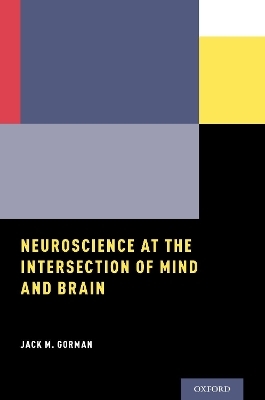
Neuroscience at the Intersection of Mind and Brain
Seiten
2018
Oxford University Press Inc (Verlag)
978-0-19-085012-8 (ISBN)
Oxford University Press Inc (Verlag)
978-0-19-085012-8 (ISBN)
Neuroscience, the study of the structure and function of the brain, has captured our imaginations. Breakthrough technologies permit neuroscientists to probe how the human brain works in ever-more fascinating detail, revealing what happens when we think, move, love, hate, and fear. We know more than ever before about what goes wrong in the brain when we develop psychiatric and neurological illnesses like depression, dementia, epilepsy, panic attacks, and schizophrenia. We also now have clues about how treatments for those disorders change the way our brains look and function.
Neuroscience at the Intersection of Mind and Brain has three main purposes. First, it makes complicated concepts and findings in modern neuroscience accessible to anyone with an interest in how the brain works. Second, it explains in detail how every experience we have from the moment we are conceived changes our brains. Third, it advances the idea that psychotherapy is a type of life experience that alters brain function and corrects aberrant brain connections.
Among the topics covered are: what makes our brains different from those of other primates, our nearest genetic neighbors? How do life's experiences affect genetic expression of the brain and the way neurons connect with each other? Why are connections between different parts of the brain important in both health and disease? What happens in the brains of animals and humans when we are suddenly afraid of something, get depressed, or fall in love? How do medications and psychotherapies work? The information in this book is based on cutting-edge research in neuroscience, psychiatry, and psychology. Written by an author who studied human behavior and brain function for three decades, it is presented in a highly accessible manner, full of personal anecdotes and observations, and touches on many of the controversies in contemporary mental health practice.
Neuroscience at the Intersection of Mind and Brain has three main purposes. First, it makes complicated concepts and findings in modern neuroscience accessible to anyone with an interest in how the brain works. Second, it explains in detail how every experience we have from the moment we are conceived changes our brains. Third, it advances the idea that psychotherapy is a type of life experience that alters brain function and corrects aberrant brain connections.
Among the topics covered are: what makes our brains different from those of other primates, our nearest genetic neighbors? How do life's experiences affect genetic expression of the brain and the way neurons connect with each other? Why are connections between different parts of the brain important in both health and disease? What happens in the brains of animals and humans when we are suddenly afraid of something, get depressed, or fall in love? How do medications and psychotherapies work? The information in this book is based on cutting-edge research in neuroscience, psychiatry, and psychology. Written by an author who studied human behavior and brain function for three decades, it is presented in a highly accessible manner, full of personal anecdotes and observations, and touches on many of the controversies in contemporary mental health practice.
Jack M. Gorman, MD Co-Founder and President, Critica Inc. CEO and Chief Scientific Officer, Franklin Behavioral Health Associates
1. Introduction
2. Is the Human Brain Unique?
3. Live Events Shape Us: The Role of Epigenetic Regulation of Gene Expression
4. Sadness and Depression: Neurons Constantly Change
5. Brain Imaging: What We Can and Cannot See
6. Making Connections: Where Does Fear Come From
7. Love, Reward, and Social Connections
8. Is There a Science of Psychotherapy?
9. Conclusion
| Erscheinungsdatum | 29.09.2018 |
|---|---|
| Verlagsort | New York |
| Sprache | englisch |
| Maße | 234 x 155 mm |
| Gewicht | 454 g |
| Themenwelt | Geisteswissenschaften ► Psychologie ► Allgemeines / Lexika |
| Geisteswissenschaften ► Psychologie ► Allgemeine Psychologie | |
| Geisteswissenschaften ► Psychologie ► Verhaltenstherapie | |
| Medizin / Pharmazie ► Gesundheitsfachberufe | |
| Naturwissenschaften ► Biologie ► Humanbiologie | |
| Naturwissenschaften ► Biologie ► Zoologie | |
| ISBN-10 | 0-19-085012-4 / 0190850124 |
| ISBN-13 | 978-0-19-085012-8 / 9780190850128 |
| Zustand | Neuware |
| Informationen gemäß Produktsicherheitsverordnung (GPSR) | |
| Haben Sie eine Frage zum Produkt? |
Mehr entdecken
aus dem Bereich
aus dem Bereich
aus Wien in die Welt – das Jahrhundert der Psychologie
Buch | Hardcover (2024)
dtv Verlagsgesellschaft
26,00 €


